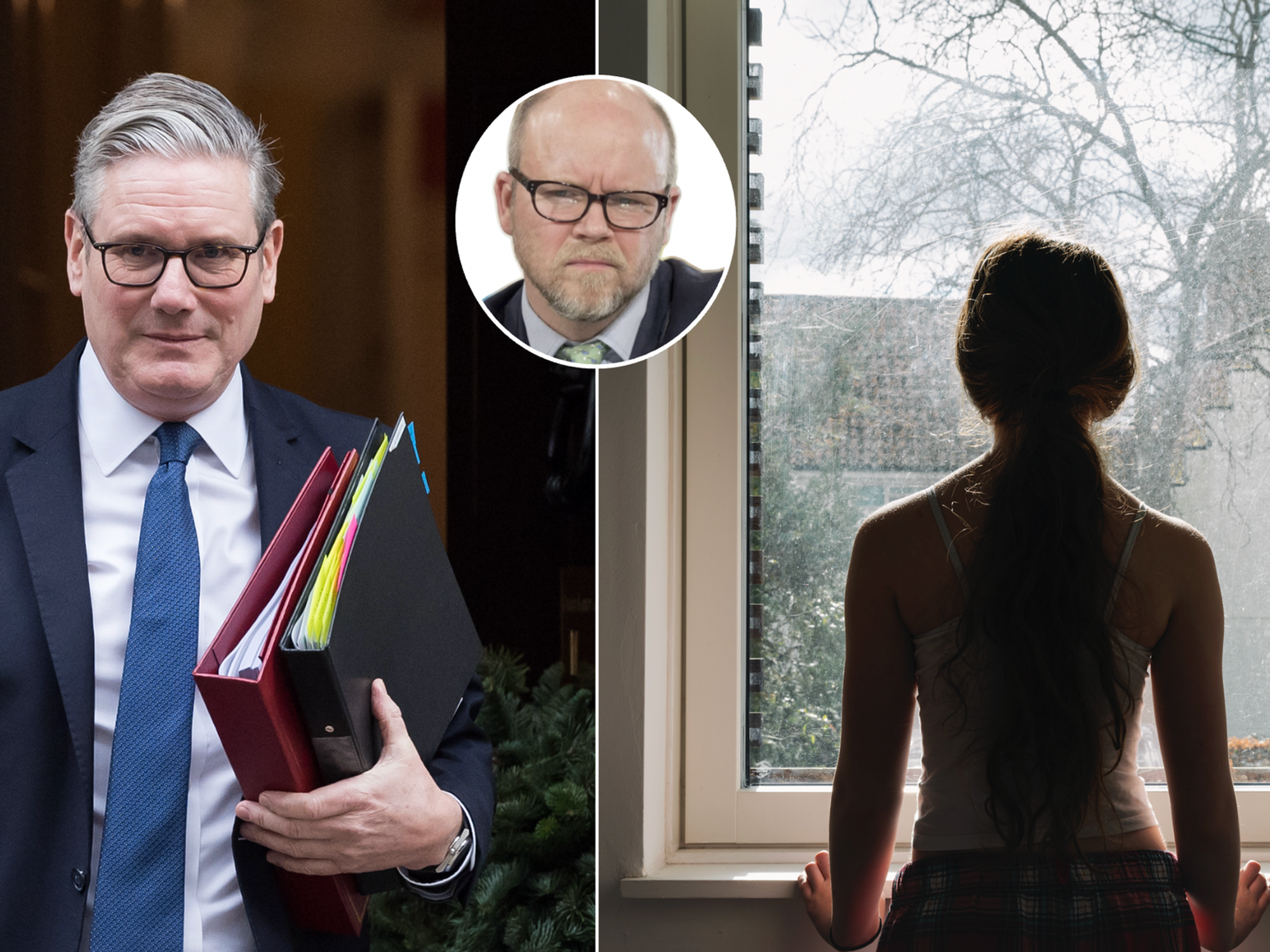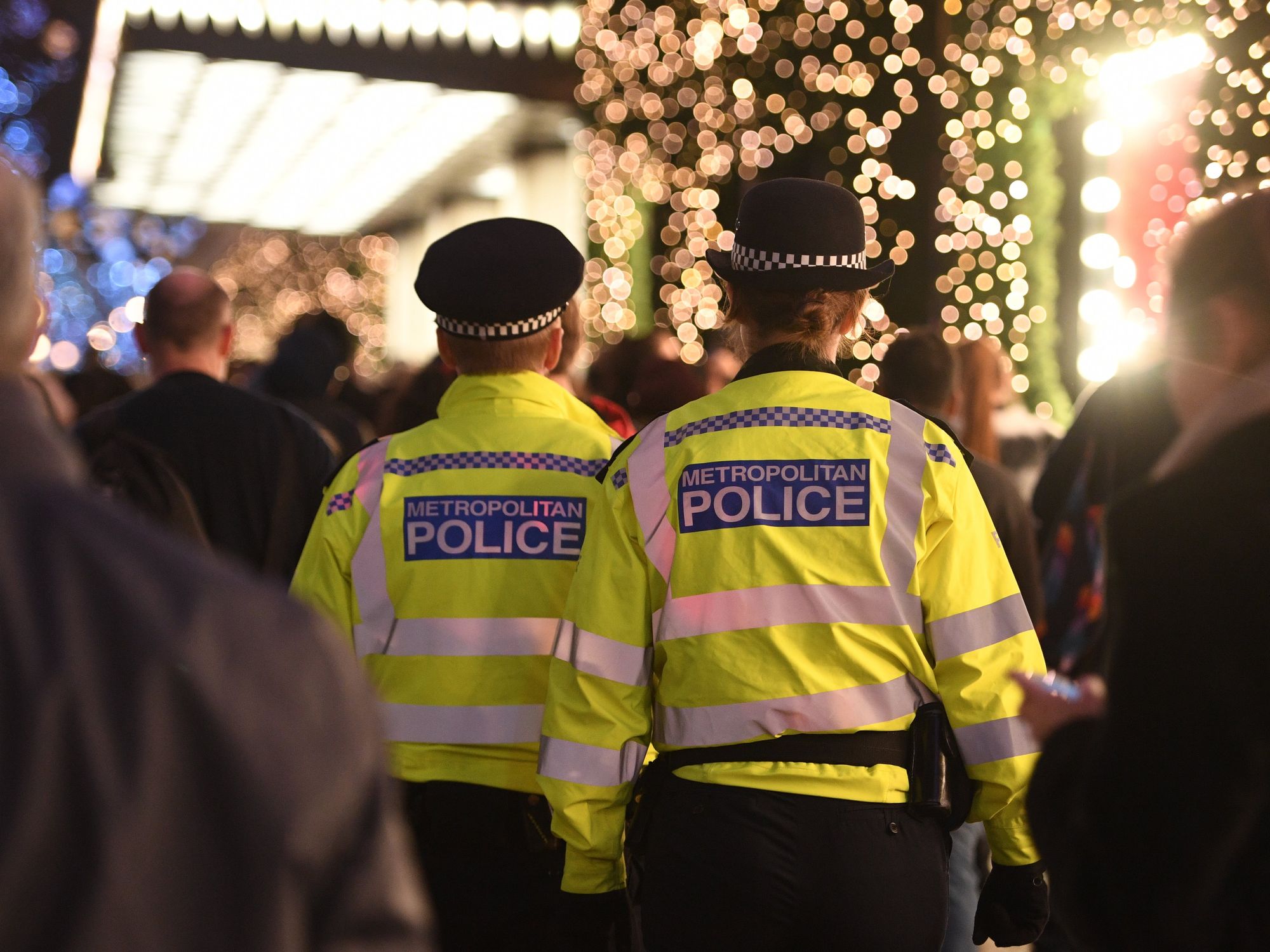Pain will not be felt and endured by faceless masses, but by those individual people, says Neil Oliver

This is a moment in our history, make no mistake. We will see in the days and weeks ahead how our future is being shaped.
Don't Miss
Most Read
When Winston Churchill lay in state in Westminster Hall, in 1965, journalist Vincent Mulchrone described two rivers running through London, one made of people, dark and silent as the night-time Thames.
Now another river of other people is flowing through an altogether different London, all the way to that same Hall and, this time, the coffin of The Queen. Westminster Hall is still there. Britain is still there. I’ve wondered if it’s a glimpse, at least in part, of the silent majority we hear so much about but seldom see.
It would be wrong to generalise, to imagine we could know the motivations of every person in that long line. But so many people moving as one, in the same direction at the same time surely suggests something shared. My hunch, for what it’s worth, is that many are also grieving the passing of the world they grew up in – a world of long-lived certainties – old certainties that seem to have died too at some point in the past few years.
Over and over again the silent majority, whoever they are, wherever they are, seem to defy expectations, much to the annoyance and frustration of those who wish they would simply disappear, once and for all. Brexit defied those expectations; so too an 80-seat majority for Boris Johnson’s Conservatives. The silent majority won’t do what they’ve been told, that much is clear. They are silent, that majority, but they are still there, silent yes, and stubborn too, and from time to time they stand up and make their point about what Britain means to them, indeed, what they mean by Britain, and British, and how they want things to be. I say this is one of those times – and what those people, some of them at least, are making clear, not by words, but by deeds, is that they want the way things used to be – and could still be, should still be.
Lo and behold, and given the chance, all manner of silent people – people with no platform from which to speak – have demonstrated what they mean, what they would say if they had the chance, by their quiet, respectful actions in the aftermath of the death of the Queen
A figurehead, someone who had been there, whether foreground or background, for all of their lives, was gone. Yet another sudden absence from a Britain that feels like it’s being deliberately dismantled, taken apart bit by bit in the manner of an old family-owned business being asset-stripped for all that might be sold off cheap.
That thousands upon thousands of those people have chosen to stand in line and be part of the process of declaring affection, if not love, not just for Elizabeth II but for all that the monarchy represents, says something profound – something that anyone with any sense at all should listen to and understand, and also respect. Whatever efforts are made to strip the Britishness out of Britain, only reveal another, deeper layer of Britain. It turns out, it’s Britain all the way down.
Those thousands are saying a respectful goodbye to the Queen, but by taking part in that ritual of remembrance – and no one does ritual and remembrance better than the British – many at least might also be declaring, loud and clear, what matters to them deep down where it counts. And what apparently matters to them is the Britain they have known and, which is much more important, the Britain they wish to continue to know.
The pressure to accept change is all around us – incessant and relentless. Surrender this; forget about that; take this instead whether you want it or not … the push is powerful but so too, and perhaps more powerful when it finally matters, is the determination to hold on, and to be what we have been for a time longer than anyone alive might remember. Standing in line to make an indelible memory of the death of the Queen is, for many of those taking part, about remembering who WE are, who WE want to continue to be.
Against the expectations of some, the death of Elizabeth II has made plain and visible not what separates the peoples of the four countries of the United Kingdom, but the ties that bind. Those with a mind to insist the time of a United Kingdom, even a Britain, has had its day, would have had everyone believe the mass of the population had outgrown concepts like constitutional monarchy. Those progressives would like it better if Britain was governed not by the pesky, independent-minded British – with their traditions and their ancient laws and customs – but by unelected bureaucrats elsewhere and answerable to no one.
Symbols matter and the king or queen of a constitutional monarchy symbolises the people. We are all sovereign individuals – and the monarch is the first sovereign among equals. Under the terms of the coronation oath, the monarch vows to defend the people and the realm, to keep safe all our essential freedoms as free people. It is potent and meaningful stuff. We live in a constitutional monarchy – all the pomp and pageantry of recent days insists that we do. In ways that should matter, the monarch is there to protect the people, every single one of us, from the ambitions of here-today-and-gone-tomorrow politicians.
In a constitutional monarchy there is a deep and powerful truth which makes it worth having above all alternatives – which is to say that in the end it is the people of a true constitutional monarchy, that govern the country. Protected by a constitutional monarch living and embodying the reality of their coronation oath, no institution – no monarch, no parliament, no judiciary, no civil service – outranks the people. Put simply, we tell them all what to do – and if they are playing their sworn and honest parts as described by the constitution – they get on and do what we have told them to do.
In the end, each of us is answerable only to a jury of our peers – and each and every jury is empowered also to judge the very justice of the law itself.
In a constitutional monarchy, we the people have all the power we will ever need to protect ourselves from any and all. It is the living out day by day, of the constitution – not just voting once every five years – that manifests, and so makes real, the true power of democracy.
This is a moment in our history, make no mistake. We will see in the days and weeks ahead how our future is being shaped.
But here’s the thing: in recent times the powers-that-be had seemed to relish telling us that it is not just change that lies ahead, but necessary pain. If the people must be cold and hungry, leading smaller, limited lives, then so be it, they said. It’s for the greater good. No pain no gain and all that. But as the world’s cameras made plain for all to see, the line filing patiently towards and past the Queen’s coffin was made not of faceless numbers, cogs in a machine, but of unique individuals, one after another in a seemingly endless procession.
The vast majority were maskless, every one of them visible. Pain will not be felt and endured by faceless masses, but by those individual people. Rather than hidden away out of sight – as they were for months of lockdown – the people of Britain, the silent majority among them, were there to be seen, if not heard. In the end, that’s what Britain is, if it is anything at all worthy of the name – millions of equal, sovereign, free individuals who know who they are and what they want. World leaders will shortly descend upon London – leaders demonstrably minded to seize and hold on to unimaginable power over our lives. There will be no better time to be visible to those leaders, to have them look a sovereign people in the eyes.
Someone, somewhere better be paying attention.











